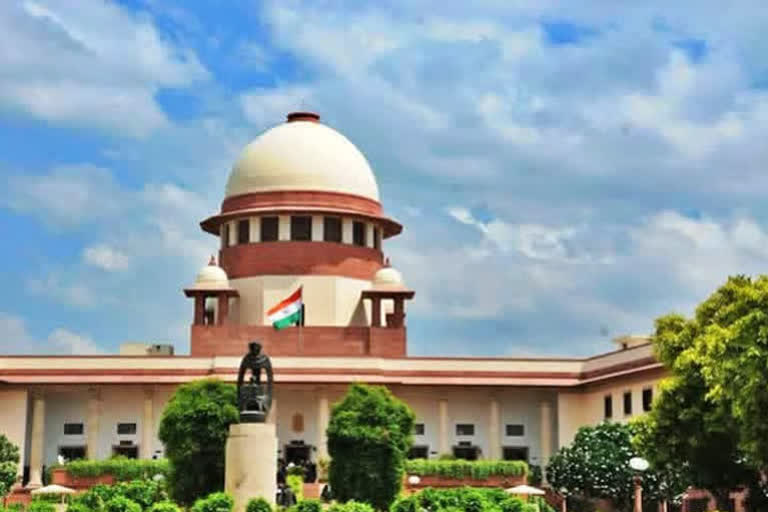New Delhi: The Supreme Court Friday asked the Chief Justices of all high courts to use information and communications technology (ICT) tools to ensure that the access to justice is “democratized and equitably allocated”, saying as per the National Judicial Data Grid (NJDG), over 91 lakh bail pleas are pending in high courts alone.
The apex court said the chief justices of every high courts and administrative judges of districts should in their administrative capacities utilize the ICT tools to remedy the "institutional problem" of bail applications and monitor the pendency as "liberty is not a gift for the few".
Further, the top court said high courts and trial courts must enforce the basic rule of the criminal justice system of “bail, not jail” in practice.
The suggestions came in the judgement by which the top court extended the interim bail granted to TV anchor Arnab Goswami and two others in a 2018 abetment to suicide case.
The top court said the grant of bail is the “solemn expression of the humaneness of the justice system” and referred to the NJDG data which reflected that 91, 56, 842 bail applications are pending in high courts.
Besides them, 12, 66,133 criminal matters such as writ petitions, appeals, revisions and applications are pending in high courts as well, the judgement said.
A bench of Justices D Y Chandrachud and Indira Banerjee said that in district courts as many as 1,96,861 bail pleas are pending and the district judges should use the ICT tools to monitor and ensure that everybody gets justice.
“The data on the NJDG is available in the public realm. The NJDG is a valuable resource for all High Courts to monitor the pendency and disposal of cases, including criminal cases. For Chief Justices of the High Courts, the information which is available is capable of being utilized as a valuable instrument to promote access to justice, particularly in matters concerning liberty.
“The Chief Justices of every High Court should in their administrative capacities utilize the ICT tools which are placed at their disposal in ensuring that access to justice is democratized and equitably allocated,” it said.
READ: Modi to visit 3 cities to review vaccine work
The NJDG data makes clear that there was a pressing need for courts across the judicial hierarchy in India to remedy the “institutional problem” of bail applications not being heard and disposed of with expediency.
“Liberty is not a gift for the few. Administrative judges in charge of districts must also use the facility to engage with the District judiciary and monitor pendency,” it suggested.
Referring to the basic rule of the criminal justice system of “bail, not jail”, it said High Courts and courts in the district judiciary must enforce this principle in practice, and not forego that duty, leaving the top court to intervene at all times.
“We must in particular also emphasise the role of the district judiciary, which provides the first point of interface to the citizen. Our district judiciary is wrongly referred to as the subordinate judiciary''. It may be subordinate in hierarchy but it is not subordinate in terms of its importance in the lives of citizens or in terms of the duty to render justice to them,” it said.
High Courts get burdened when district courts decline anticipatory bail or bail-in “deserving cases” and this problem continues in the Supreme Court as well, when High Courts refuse similar reliefs, the judgement said.
"The consequences for those who suffer incarceration are serious. Common citizens without the means or resources to move the High Courts or this court languish as undertrials. Courts must be alive to the situation as it prevails on the ground – in the jails and police stations where human dignity has no protector," it said.
“As judges, we would do well to remind ourselves that it is through the instrumentality of bail that our criminal justice system''s primordial interest in preserving the presumption of innocence finds its most eloquent expression,” it said.
Further, the bench said “We have given expression to our anguish in a case where a citizen has approached this court. We have done so in order to reiterate principles which must govern countless other faces whose voices should not go unheard."
PTI



